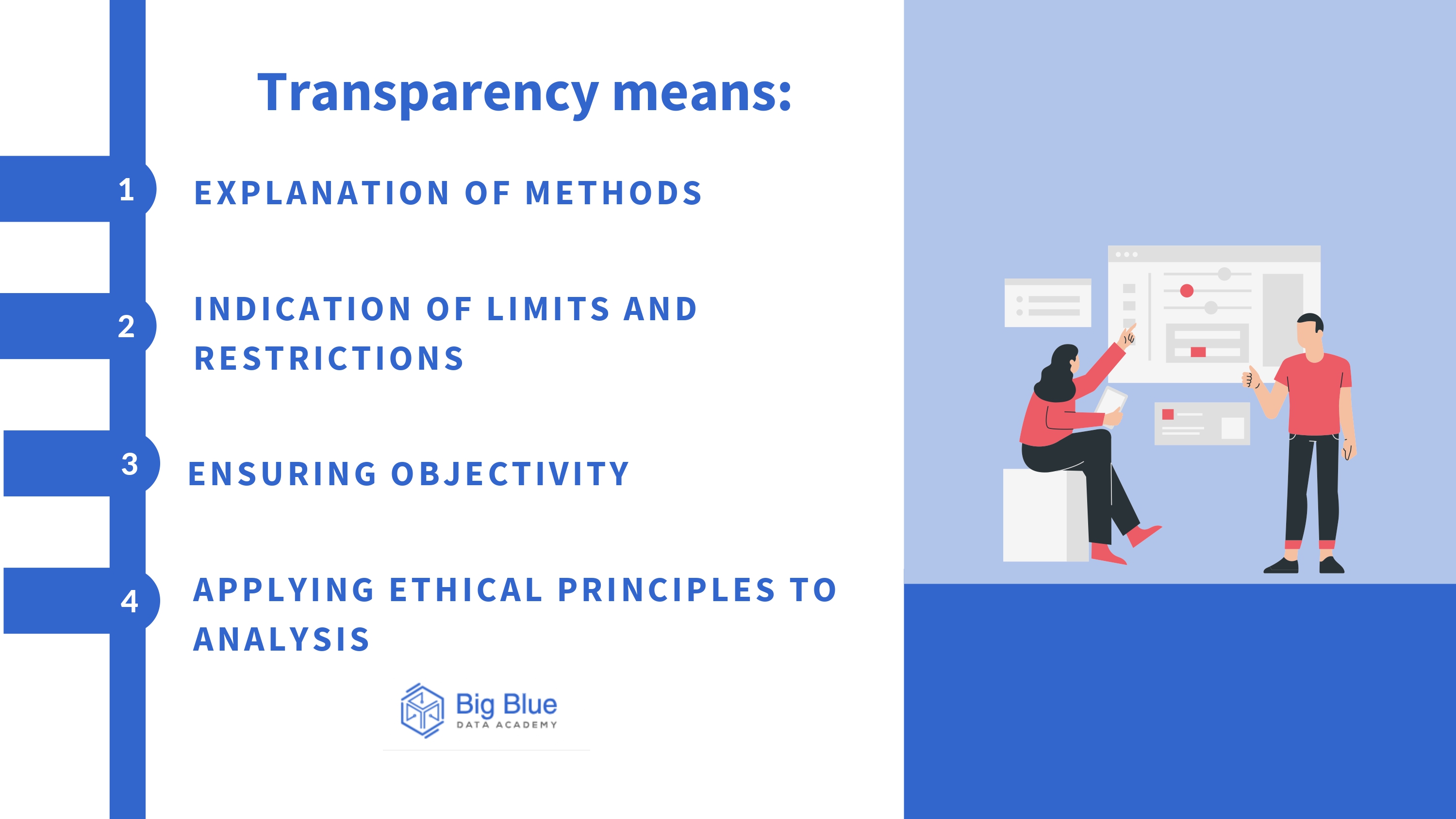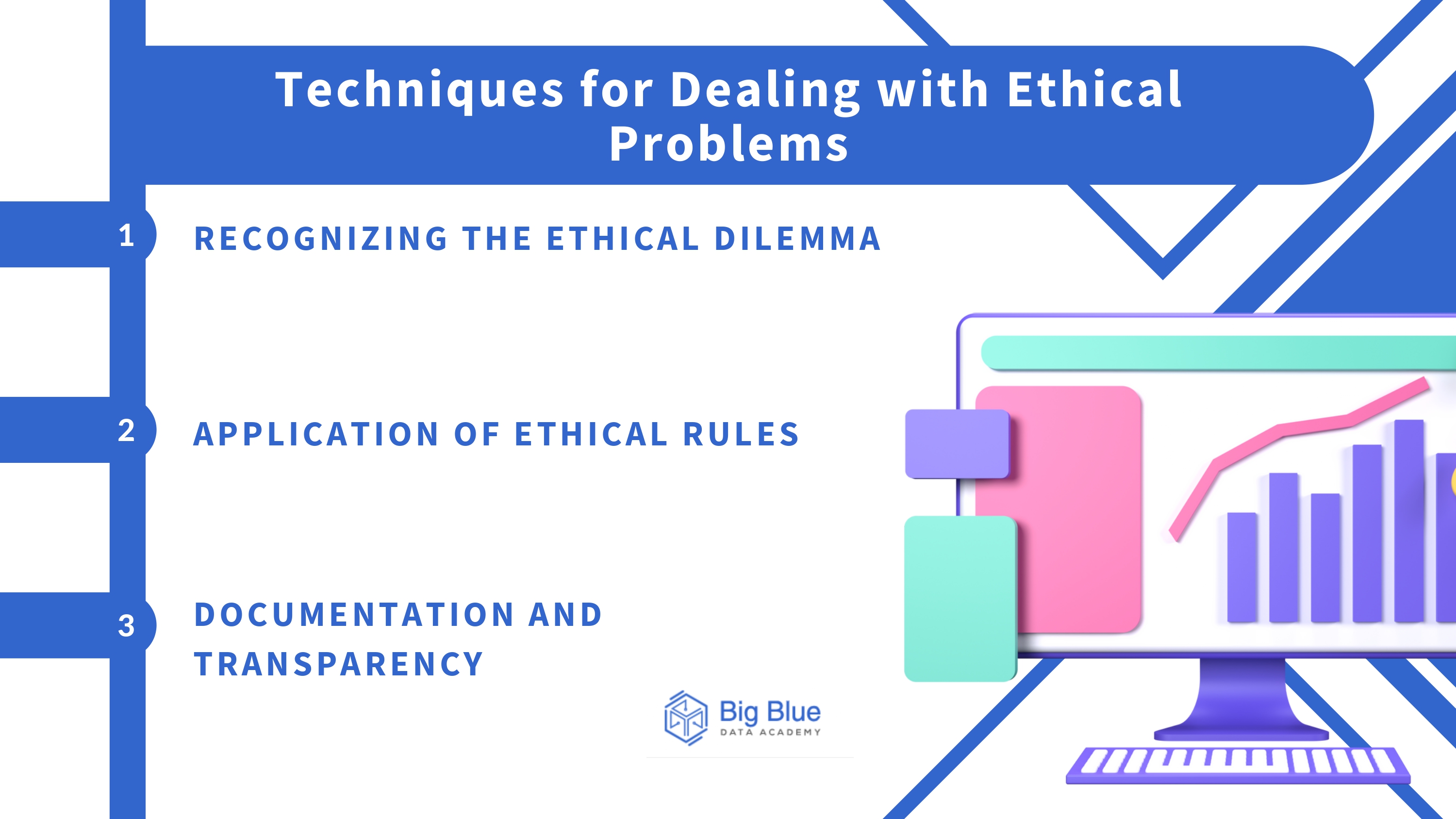Ethical Issues in Data Analysis
When we hear the term "Data Analytics", we may initially think of the breadth of possibilities that lie ahead.
However, behind data analytics lies a "dark" side that we are asked to address: ethical issues.
In this article, we will examine the importance and challenges of ethical issues in data analytics, as well as the techniques proposed to address them.
Importance and Challenges of Ethical Issues
Data analytics raises important ethical issues for practitioners in the field.
These include privacy, transparency in data management, and data security.
Let's examine them more closely!
#1 Privacy Protection
When dealing with data, we must always remember the importance of privacy. Everyone has the right to be protected from unwanted intrusion into their privacy.
As Data Analysts, it is our responsibility to ensure that the information we use remains secure and anonymous.
#2 Transparency in Data Management
It is important to be open and transparent about how we use data.
Users need to understand and trust how their information is collected, processed and used.
Therefore, a lack of transparency can lead to a loss of trust and doubts about the ethics of our practices.
But what does transparency mean to a Data Analyst?

Transparency mainly means:
Explanation of Methods
Indication of Limits and Restrictions
Ensuring Objectivity
Applying Ethical Principles to Analysis
#3 Data Security
Data security is vital for any data analyst.
As we manage sensitive information and large data sets, it is essential to ensure the security and proper use of that data.
So, protecting against unauthorized access, malicious attacks and data leaks is vital.
Techniques for Dealing with Ethical Problems
Now that we've explored ethical considerations, let's delve into techniques that enable us to address them with professionalism and responsibility.

#1 Recognizing the ethical dilemma
First, before we make any decision, it is good to take time to think about the ethical implications of our work.
We can consider questions such as:
How will my analysis affect the individuals or groups associated with the data?
Are there potential biases or discrimination in my data or methods?
How can I ensure the confidentiality and security of the data?
#2 Application of ethical rules
Codes of conduct typically offer guidance and direct our decision-making process.
Therefore, we can:
Adopt a code of ethics, such as the ACM code.
Use these principles to ensure that our work is ethical and responsible.
Consult with superiors or colleagues if we are unsure about the application of ethical principles to a particular situation.
#3 Documentation and transparency
Finally, it is important to be able to:
Document our methods and conclusions in detail, including any limitations or uncertainties in the data.
Ensure that our reports and presentations are transparent and easily understood by our audience.
Be honest about any potential biases or flaws in our analysis.
In Summary
Ethical data analysis is an ongoing process that requires critical thinking, information and a commitment to the principles of integrity and accountability.
By applying the above techniques, we can contribute to the responsible and ethical use of data to make better decisions.
If ethical data analysis piqued your interest, feel free to follow us for more educational articles!


.jpg)